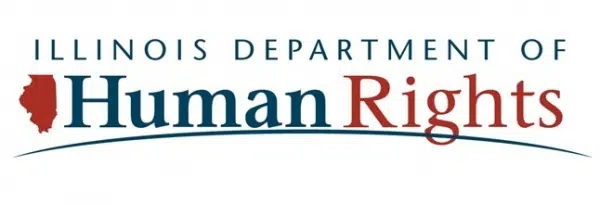
For Immediate Release – December 30, 2021
Pritzker Administration Releases Guidance to Further Protect Transgender, Nonbinary and Gender Non-Conforming Students
CHICAGO – Today the Illinois Department of Human Rights (IDHR) announced the release of non-regulatory guidance on non-discrimination protections for transgender, nonbinary and gender non-conforming students under the Illinois Human Rights Act (Act).
The new guidance document was developed based on a recommendation from the Affirming and Inclusive Schools Task Force. School districts, students and their families will now have a resource to better understand the protections afforded by the Act that ensure welcoming, safe, supportive, and inclusive school environments for all.
“Ensuring every Illinois student has access to a safe, validating learning environment where they can be their true self is a top priority for my administration,” said Governor JB Pritzker. “This guidance from the Illinois Department of Human Rights will provide students, caregivers, and educators another tool to ensure classrooms are welcoming, affirming, and inclusive for all students.”
“Illinois schools must be safe, affirming environments for all students,” said IDHR Director Jim Bennett. “The guidance is intended for school districts, students and their families and caregivers, to better understand their rights and responsibilities under the Act. Today’s issuance of guidance helps schools create safe, supportive environments for transgender, nonbinary, and gender non-conforming students to learn and be their true selves.”
Students in Illinois have the right to an educational environment free from discrimination and harassment based on their gender-related identity. Nationally, 78% of transgender and nonbinary youth report being subject to discrimination due to their gender identity, and transgender students who experience a hostile school climate are 41% more likely to attempt suicide.
IDHR encourages every school district to strengthen its policies, procedures, and practices relating to support for these students.
Click here to view the guidance online.
The IDHR stands ready to investigate charges of discrimination. Any Illinoisan, including minors, who believes they’ve been a victim of discrimination based on their gender identity, or any protected class under the Act, should file a charge. Charges may be filed online at Illinois.gov/DHR or by calling 312.814.6200.
Background on the Act’s Protection from Discrimination Based on Gender-Related Identity
On December 6, 1979, the Act was signed into law, creating broad civil rights coverage for the people of Illinois. In 2006, the Act was expanded to include “sexual orientation” as a distinct protected class and “gender-related identity” within the definition of “sexual orientation.” Thus, Illinois became one of the first states in the nation to explicitly provide for the protection of the rights of transgender, nonbinary, and gender nonconforming individuals to be free from discrimination. At the time of the publication of this guidance, an increasing number of states have enacted laws that explicitly prohibit discrimination of students on the basis of both sexual orientation and gender-related identity.
About the Illinois Department of Human Rights
The Illinois Department of Human Rights (IDHR) enforces the Illinois Human Rights Act (Act), a law that prohibits discrimination throughout Illinois in employment, real estate transactions, financial credit, and places of public accommodation on the bases of race, color, religion, sex (including sexual harassment), pregnancy, national origin, ancestry, military status, age (40 and over), order of protection status, marital status, sexual orientation (including gender-related identity), unfavorable military discharge, and physical and mental disability. Additional specific protections apply in certain settings. In employment, discrimination is further prohibited on the bases of citizenship status, work authorization status, arrest record and conviction record. In real estate transactions, discrimination is further prohibited on the basis of familial status and arrest record. And, in education, sexual harassment of students is prohibited in public and private elementary, secondary, and higher educational institutions. To learn more about rights and responsibilities under the Act, visit Illinois.gov/DHR and follow IDHR on Facebook, Twitter, Instagram & LinkedIn.







Comments